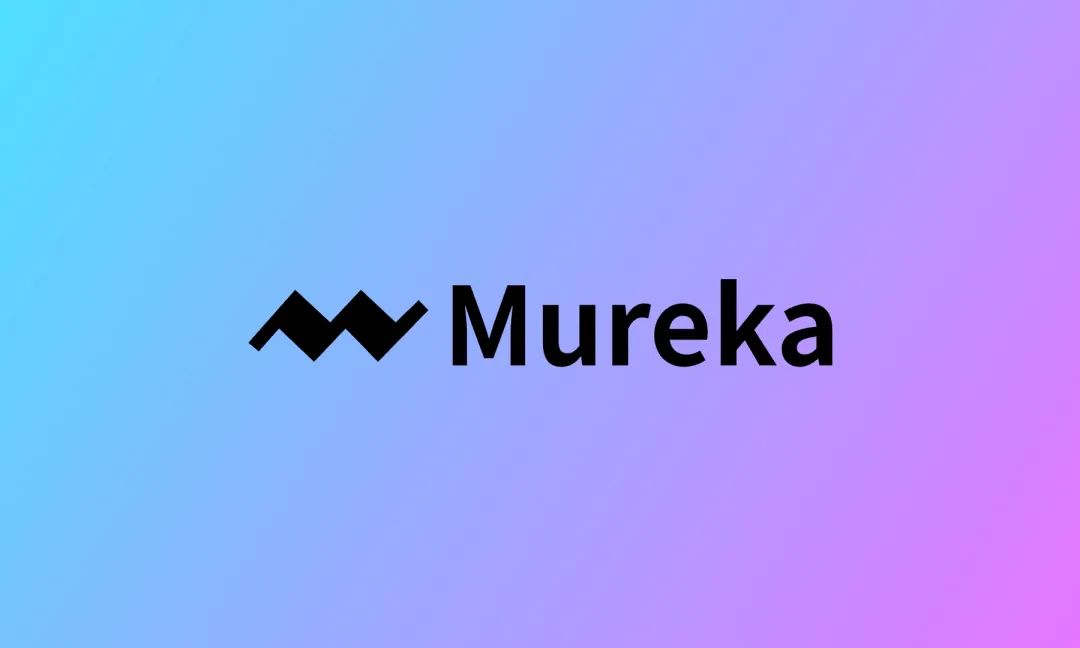
人工智能是否会毁灭人类,或者迫使人们失业?对于这个问题,专家们或许存在分歧,但比尔·盖茨认为,在不到十年内,人人都将有自己的高级助理。
亿万富翁、微软(Microsoft)的联合创始人比尔·盖茨于11月9日在他的官方博客中发文称,虽然在2023年,“软件依旧很糟糕”,但他预测这将在未来五年内“彻底改变”。
盖茨表示,用户不需要在设备上安装各种各样的应用程序来执行不同的任务,只需要使用日常用语告诉设备希望它们做什么。他指出,这就是人工智能驱动的“助理”的作用。
盖茨写道:“在不久的将来,任何人在线上都将有一个由人工智能驱动的私人助理,今天的技术将不可同日而语。私人助理变得更智能。它们将具有主动性,可以在你提出要求之前给出建议。”
盖茨认为,这种私人助理能够在不同的应用程序上执行不同的任务,而且随着时间的推移,它们会更加了解用户,并持续完善。例如,如果你正在计划一次旅行,现有的聊天机器人或许只能找到符合你预算的酒店,但私人助理会知道你将在一年的哪个时间旅行,以及你会寻找新目的地,还是更想回到相同的地方。
盖茨表示:“如果你要求私人助理为你策划行程,它就会根据你对探险的兴趣和倾向提供建议,并为你预约你喜欢的餐厅类型。如果现在你想要这种深度个性化的规划,你就需要付费找旅行社,并拿出时间告诉他们你的期待。”
盖茨补充道,人工智能助理还可以大幅提高我们的生产率。
微软和谷歌(Google)等许多公司在利用Copilot和Bard等虚拟助手,争相开发提高生产率的人工智能。但盖茨认为,未来的人工智能助理“能够做的”远超过这类生产率工具。
他预测:“如果你想创业,私人助理就将帮助你起草商业计划,编写创业演示报告,甚至可以生成产品可能的外形图片。公司能够提供这类私人助理,员工可以直接进行咨询,它们还将参与每一次会议,以便于回答问题。”
大量投资
自从OpenAI的生成式人工智能聊天机器人ChatGPT现象级崛起以来,人工智能开发领域就迎来了数十亿美元的投资。
然而,虽然微软、谷歌、百度和埃隆·马斯克的xAI都在争相开发最具有颠覆性的人工智能模型,但盖茨认为没有一家公司能够主导人工智能助理行业。但他指出,未来的大多数人工智能助理需要付费才可以使用。
盖茨说:“从今年开始从事人工智能研发的公司数量来看,未来竞争将变得极其激烈,可能让人工智能助理变得价格低廉。目前,人工智能助理被嵌入到文档处理软件和数据表等软件当中,但最终它们将独立运行。无论你是在办公室还是从事其他工作,你的人工智能助理都能够像现在高管的私人助理一样,为你提供帮助。”
盖茨坚持认为,人工智能助理最终将协助用户“完成几乎所有活动,在生活的方方面面提供帮助。”
他写道:“如果朋友刚刚完成了手术,你的人工智能助理就会提议送花,并且可以为你订花。如果你告诉它你想与大学室友见面,它就会与室友的人工智能助理合作确定聚会时间,而且在你到达聚会地点之前,它会提醒你室友最大的孩子刚刚开始就读本地的大学。”
盖茨之前曾经谈及,他认为人工智能革命会让任何人拥有自己的“白领”私人助理,而且盖茨并非唯一一位做出这样预测的科技业者。
今年早些时候,互联网发明家蒂姆·伯纳斯-李对美国消费者新闻与商业频道(CNBC)的《Beyond the Valley》播客表示,人工智能将能够访问我们的数据,并承担起私人助理的角色。
谷歌DeepMind的联合创始人穆斯塔法·苏莱曼在今年9月的一次采访中表示,他认为在五年内任何人都将拥有人工智能驱动的私人助理。(财富中文网)
译者:刘进龙
审校:汪皓
人工智能是否会毁灭人类,或者迫使人们失业?对于这个问题,专家们或许存在分歧,但比尔·盖茨认为,在不到十年内,人人都将有自己的高级助理。
亿万富翁、微软(Microsoft)的联合创始人比尔·盖茨于11月9日在他的官方博客中发文称,虽然在2023年,“软件依旧很糟糕”,但他预测这将在未来五年内“彻底改变”。
盖茨表示,用户不需要在设备上安装各种各样的应用程序来执行不同的任务,只需要使用日常用语告诉设备希望它们做什么。他指出,这就是人工智能驱动的“助理”的作用。
盖茨写道:“在不久的将来,任何人在线上都将有一个由人工智能驱动的私人助理,今天的技术将不可同日而语。私人助理变得更智能。它们将具有主动性,可以在你提出要求之前给出建议。”
盖茨认为,这种私人助理能够在不同的应用程序上执行不同的任务,而且随着时间的推移,它们会更加了解用户,并持续完善。例如,如果你正在计划一次旅行,现有的聊天机器人或许只能找到符合你预算的酒店,但私人助理会知道你将在一年的哪个时间旅行,以及你会寻找新目的地,还是更想回到相同的地方。
盖茨表示:“如果你要求私人助理为你策划行程,它就会根据你对探险的兴趣和倾向提供建议,并为你预约你喜欢的餐厅类型。如果现在你想要这种深度个性化的规划,你就需要付费找旅行社,并拿出时间告诉他们你的期待。”
盖茨补充道,人工智能助理还可以大幅提高我们的生产率。
微软和谷歌(Google)等许多公司在利用Copilot和Bard等虚拟助手,争相开发提高生产率的人工智能。但盖茨认为,未来的人工智能助理“能够做的”远超过这类生产率工具。
他预测:“如果你想创业,私人助理就将帮助你起草商业计划,编写创业演示报告,甚至可以生成产品可能的外形图片。公司能够提供这类私人助理,员工可以直接进行咨询,它们还将参与每一次会议,以便于回答问题。”
大量投资
自从OpenAI的生成式人工智能聊天机器人ChatGPT现象级崛起以来,人工智能开发领域就迎来了数十亿美元的投资。
然而,虽然微软、谷歌、百度和埃隆·马斯克的xAI都在争相开发最具有颠覆性的人工智能模型,但盖茨认为没有一家公司能够主导人工智能助理行业。但他指出,未来的大多数人工智能助理需要付费才可以使用。
盖茨说:“从今年开始从事人工智能研发的公司数量来看,未来竞争将变得极其激烈,可能让人工智能助理变得价格低廉。目前,人工智能助理被嵌入到文档处理软件和数据表等软件当中,但最终它们将独立运行。无论你是在办公室还是从事其他工作,你的人工智能助理都能够像现在高管的私人助理一样,为你提供帮助。”
盖茨坚持认为,人工智能助理最终将协助用户“完成几乎所有活动,在生活的方方面面提供帮助。”
他写道:“如果朋友刚刚完成了手术,你的人工智能助理就会提议送花,并且可以为你订花。如果你告诉它你想与大学室友见面,它就会与室友的人工智能助理合作确定聚会时间,而且在你到达聚会地点之前,它会提醒你室友最大的孩子刚刚开始就读本地的大学。”
盖茨之前曾经谈及,他认为人工智能革命会让任何人拥有自己的“白领”私人助理,而且盖茨并非唯一一位做出这样预测的科技业者。
今年早些时候,互联网发明家蒂姆·伯纳斯-李对美国消费者新闻与商业频道(CNBC)的《Beyond the Valley》播客表示,人工智能将能够访问我们的数据,并承担起私人助理的角色。
谷歌DeepMind的联合创始人穆斯塔法·苏莱曼在今年9月的一次采访中表示,他认为在五年内任何人都将拥有人工智能驱动的私人助理。(财富中文网)
译者:刘进龙
审校:汪皓
Artificial intelligence might be dividing experts when it comes to its potential to destroy mankind or force people out of their jobs—but according to Bill Gates, it’s going to land us all with our very own executive assistant in less than a decade.
In a post to his official blog on November 9, the billionaire Microsoft cofounder said that even in 2023, “software is still pretty dumb”—but he predicted that this would “change completely” within the next five years.
Instead of having multiple different apps on our devices to carry out different tasks, he said, users would simply need to tell their device, in everyday language, what they want to do. That’s where so-called AI-powered “agents” will step in, Gates said.
“In the near future, anyone who’s online will be able to have a personal assistant powered by artificial intelligence that’s far beyond today’s technology,” he wrote. “Agents are smarter. They’re proactive—capable of making suggestions before you ask for them.”
These personal assistants, capable of carrying out different tasks across different apps, will continuously improve over time as they get to know their users, according to Gates. For example, if you were planning a trip, existing chatbots might only be able to identify hotels that fit within your budget—but an agent will know what time of year you’ll be traveling and whether you always seek out new destinations or prefer to return to the same place.
“When asked, it will recommend things to do based on your interests and propensity for adventure, and it will book reservations at the types of restaurants you would enjoy,” Gates said. “If you want this kind of deeply personalized planning today, you need to pay a travel agent and spend time telling them what you want.”
AI agents will also drastically overhaul our productivity, Gates added.
Microsoft and Google are among the plethora of firms already competing to develop productivity-boosting AI with their virtual assistants Copilot and Bard. But according to Gates, the AI agents of the future will “do even more” than those productivity tools.
“If you have an idea for a business, an agent will help you write up a business plan, create a presentation for it, and even generate images of what your product might look like,” he predicted. “Companies will be able to make agents available for their employees to consult directly and be part of every meeting so they can answer questions.”
Massive investments
Since the phenomenal rise of OpenAI’s generative AI chatbot ChatGPT, billions of dollars have been poured into the development of artificial intelligence.
But while the likes of Microsoft, Google, Baidu, and Elon Musk’s xAI are all competing to produce the most disruptive artificial intelligence model, Gates speculated that no single company will dominate the agents business. However, he noted that most of the AI agents of the future would likely be something individuals will have to pay for.
“[But] if the number of companies that have started working on AI just this year is any indication, there will be an exceptional amount of competition, which will make agents very inexpensive,” he said. “Today, agents are embedded in other software like word processors and spreadsheets, but eventually they’ll operate on their own. Whether you work in an office or not, your agent will be able to help you in the same way that personal assistants support executives today.”
Ultimately, agents will be able to assist their users with “virtually any activity and any area of life,” Gates insisted.
“If your friend just had surgery, your agent will offer to send flowers and be able to order them for you,” he wrote. “If you tell it you’d like to catch up with your old college roommate, it will work with their agent to find a time to get together, and just before you arrive, it will remind you that their oldest child just started college at the local university.”
Gates has previously spoken about how he believes the AI revolution will lead to everyone having their own “white-collar” personal assistants—and he isn’t the only technologist to have made that prediction.
Earlier this year, internet inventor Tim Berners-Lee told CNBC’s Beyond the Valley podcast that AI would be able to access our data and step into the role of personal assistant.
Meanwhile, Google DeepMind cofounder Mustafa Suleyman said in a September interview that he believed everybody would have their own AI-powered personal assistant within five years.





